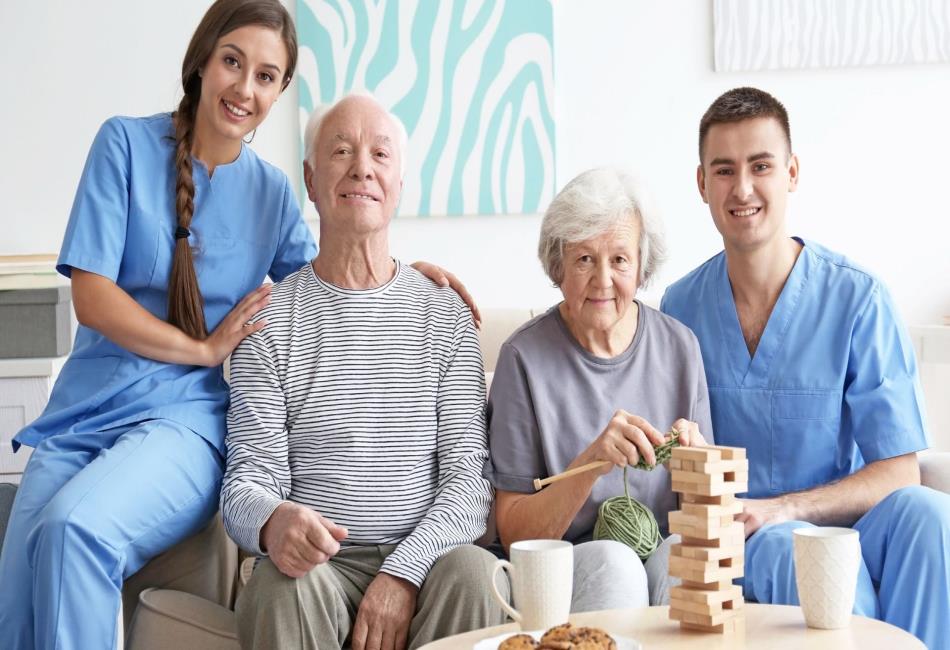Table of Contents:
- Introduction to Professional Caregiving
- Key Responsibilities of a Professional Caregiver
- The Impact on Senior Independence
- Benefits of Professional Caregiving Services
- How to Choose the Right Caregiver
- Training and Qualifications for Caregivers
- Challenges Faced by Caregivers
- Future Trends in Professional Caregiving
Introduction to Professional Caregiving
Professional caregiving is an invaluable service that supports the well-being of seniors, allowing them to maintain their dignity and independence as they age. In a world where the elderly population is rapidly growing, the demand for personalized care has never been higher.
The importance of caregiving extends beyond immediate family circles and professional realms. As highlighted by the National Institute on Aging, professional caregivers play a crucial role in helping seniors navigate the challenges of aging, fostering environments where they feel safe, loved, and capable of maintaining their independence. Understanding caregivers’ multifaceted roles is essential in appreciating their vital contribution to society.
Key Responsibilities of a Professional Caregiver
A professional caregiver’s day is filled with various tasks designed to meet their clients’ physical and emotional needs. These responsibilities typically include assisting with daily activities such as bathing, dressing, and meal preparation, which are crucial for seniors who may struggle with mobility or dexterity issues. In addition, caregivers manage medication schedules and monitor health conditions, ensuring that any changes are reported promptly to medical professionals. Organizations like Beacon Specialized Living provide essential services and become integral to a senior’s support system. These caregivers offer more than just physical assistance; they provide emotional support, companionship, and a sense of security that contribute significantly to a senior’s quality of life.
Beyond these practical tasks, caregivers provide companionship and emotional support, becoming trusted friends and confidants to their clients. This relationship is vital in preventing feelings of isolation and loneliness, which are common among older people. By engaging clients in conversation, participating in their hobbies, and encouraging social interactions, caregivers help foster a sense of normalcy and joy in daily life.
The Impact on Senior Independence
The support caregivers provide empowers seniors to live independently, often within their homes. Caregivers employ various strategies, such as incorporating mobility aids or modifying living spaces, to enhance safety and accessibility. These adaptations enable seniors to perform daily activities more autonomously, boosting their self-esteem and confidence.
Encouraging independence is not only about physical capabilities but also about building a mindset of resilience and self-efficacy. Caregivers actively involve seniors in decision-making processes, from planning daily schedules to choosing preferred forms of exercise and activities. Such involvement ensures seniors feel in control of their lives, which is essential for their psychological well-being.
Benefits of Professional Caregiving Services
The personalized nature of professional caregiving services offers numerous benefits, including the tailored care each senior receives. Care plans are crafted to address individuals’ specific health needs, preferences, and goals, ensuring comprehensive support. This approach often improves overall health and well-being, as caregivers can swiftly adapt care strategies in response to changing needs.
Furthermore, the presence of a caregiver can significantly reduce the risk of depression and other mental health issues among seniors. Regular social interaction, emotional support, and involvement in community activities help seniors feel valued and connected. The psychological effects of having a dedicated caregiver include reduced anxiety, improved mood, and a greater sense of purpose and belonging.
How to Choose the Right Caregiver
Selecting the right caregiver requires careful consideration of both credentials and personal attributes. Verifying the caregiver’s qualifications, such as CPR and first aid certifications, and experience working with seniors, is essential. However, traits like empathy, patience, and excellent communication skills are equally important and can significantly affect the caregiving experience.
During the selection process, interviews provide an opportunity to ask potential caregivers about their approach to everyday scenarios, such as handling emergencies or supporting specific interests and hobbies. These conversations help determine whether a caregiver’s style aligns with a senior’s needs and personality, ensuring a harmonious and effective caregiving relationship.
Training and Qualifications for Caregivers
The skills required for effective caregiving go beyond simple training. Many caregivers pursue formal education and certification programs, providing a solid foundation for essential healthcare practices. PCA training and other caregiver training programs offer comprehensive coursework covering eldercare ethics, chronic disease management, and emergency response.
Continuing education is equally vital for caregivers, as it informs them about the latest caregiving innovations and best practices. As the industry evolves, ongoing professional development helps caregivers maintain a high standard of care and adapt to new challenges in the field.
Challenges Faced by Caregivers
Despite its rewards, caregiving can be demanding and challenging. Caregivers often manage heavy workloads and high-pressure situations, which can lead to stress and burnout if not correctly handled. Establishing a healthy work-life balance is crucial for caregivers to maintain their well-being and continue providing quality care.
The emotional attachment between caregivers and clients can also pose challenges. While these bonds are beneficial, they can make it difficult for caregivers to detach emotionally when care ends or changes. Access to support systems and respite care options can provide caregivers with the necessary resources to cope with these emotional demands and remain resilient.
Future Trends in Professional Caregiving
Looking ahead, professional caregiving is poised for significant growth and transformation. Technological advancements, such as telehealth services and smart home technologies, are becoming increasingly integrated into care practices, enhancing the efficiency and effectiveness of service delivery.
As the demand for skilled caregivers continues to rise, driven by an aging population, the profession will likely see further innovation in training and development programs. These advancements promise to equip caregivers with the tools and knowledge needed to meet the evolving needs of senior care, ensuring sustainable and high-quality caregiving for future generations.
